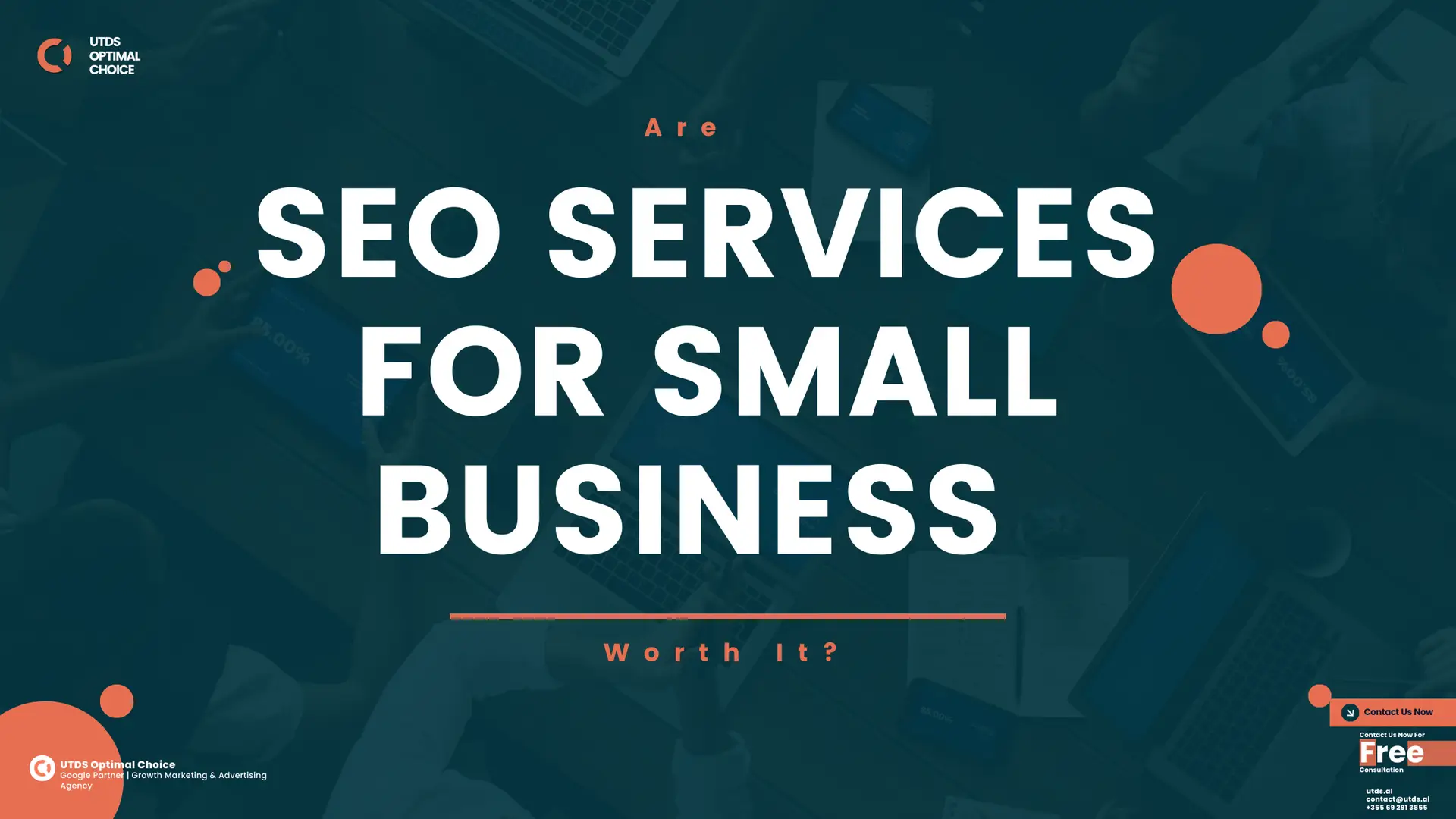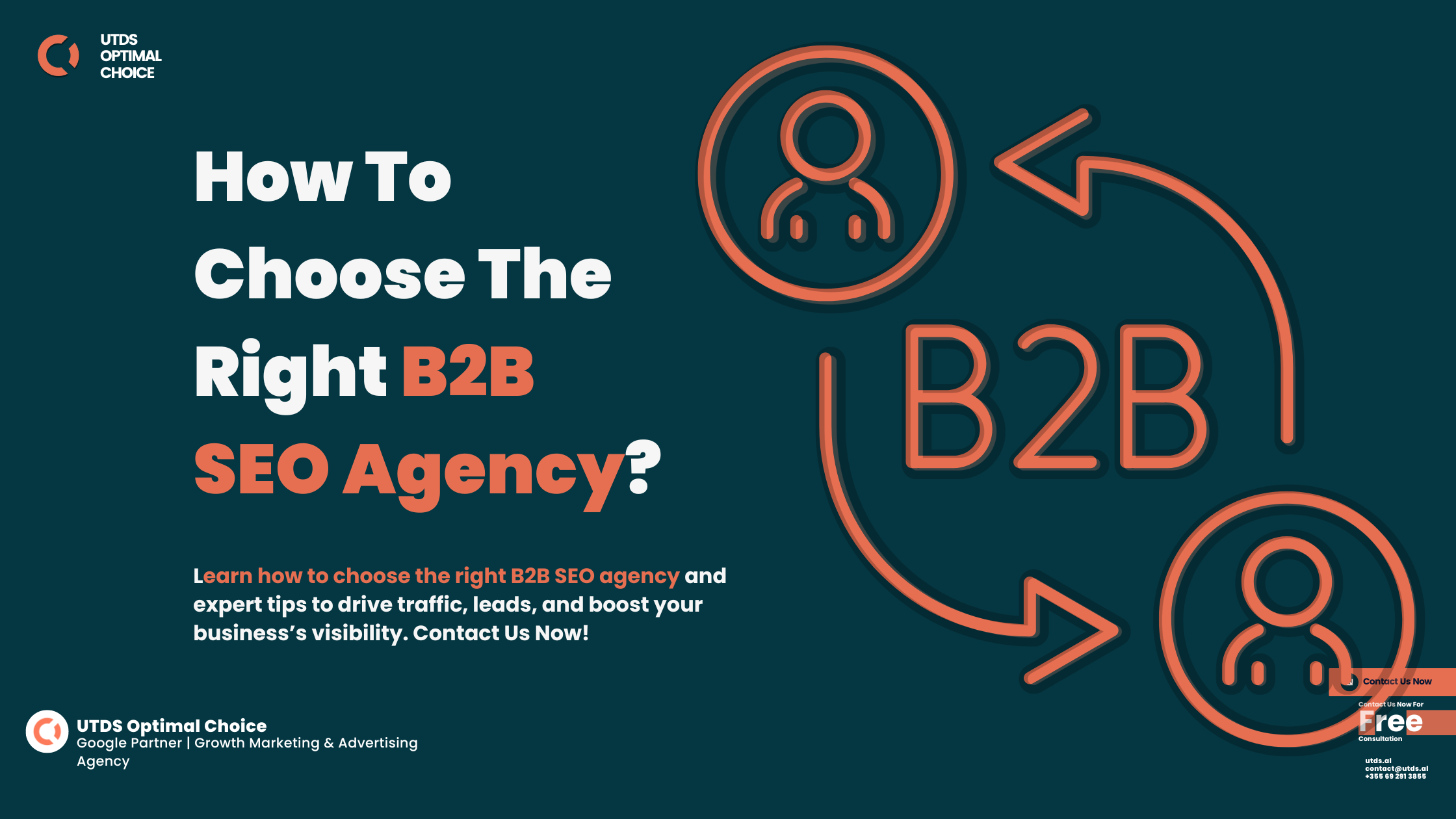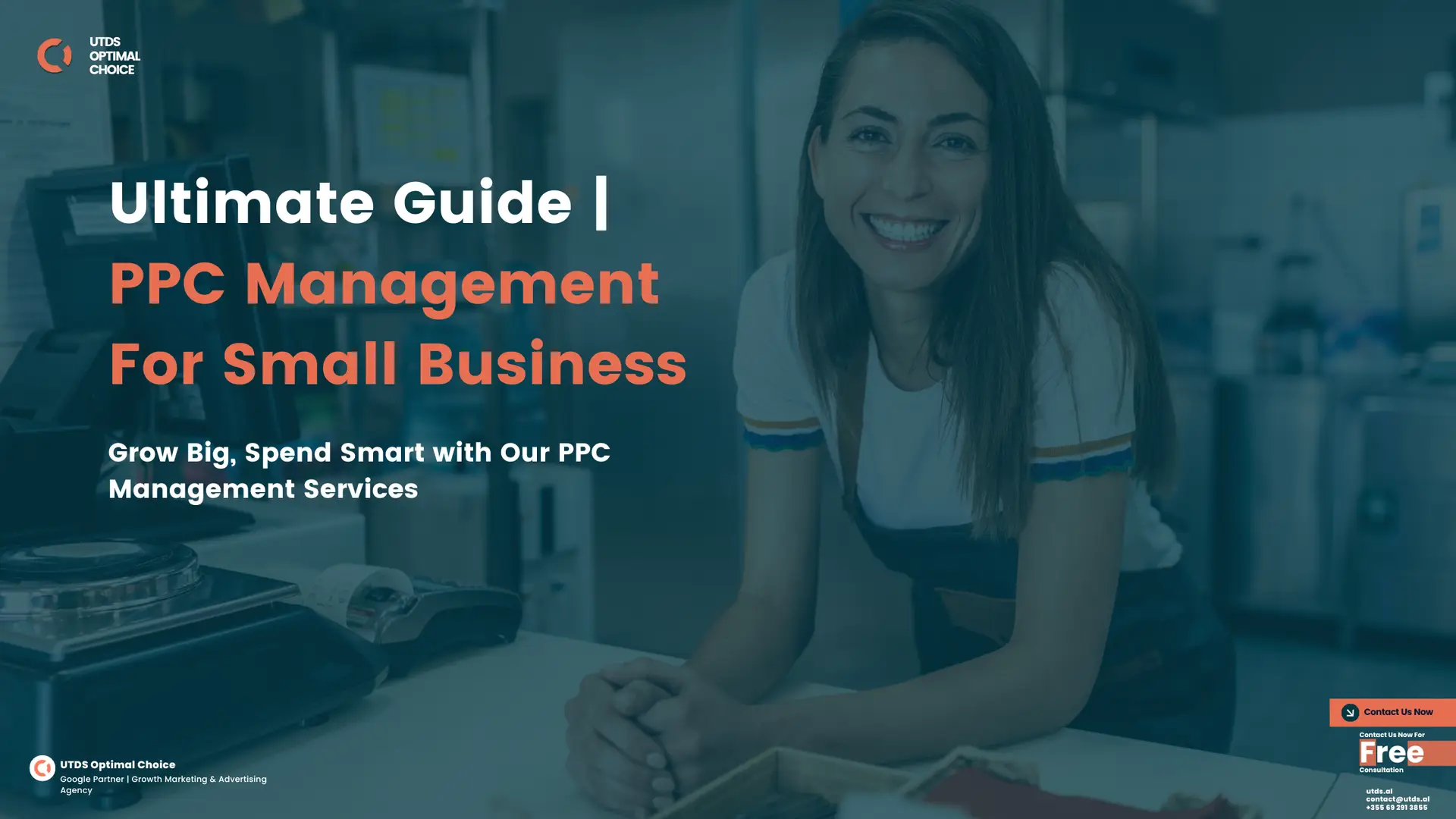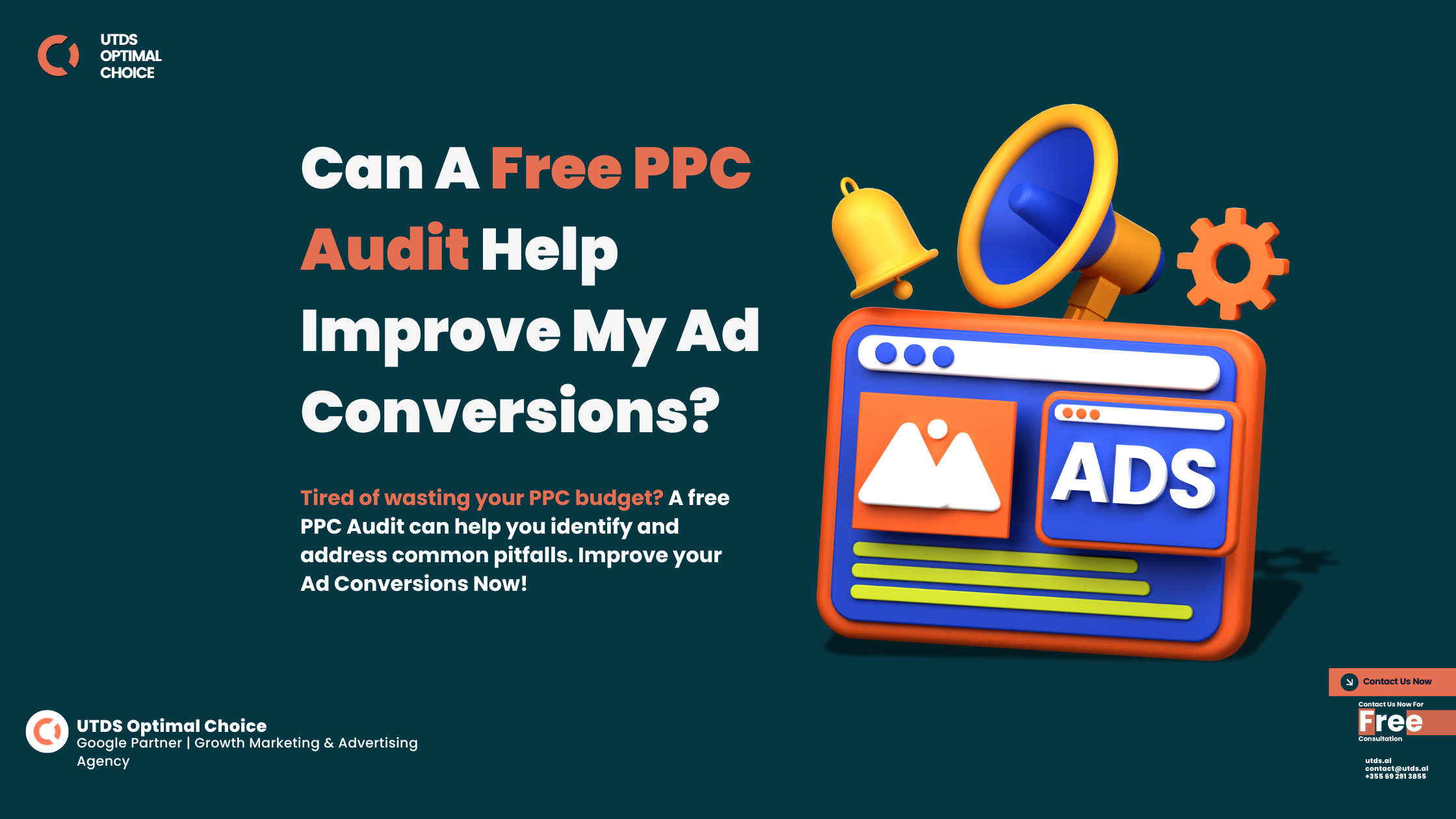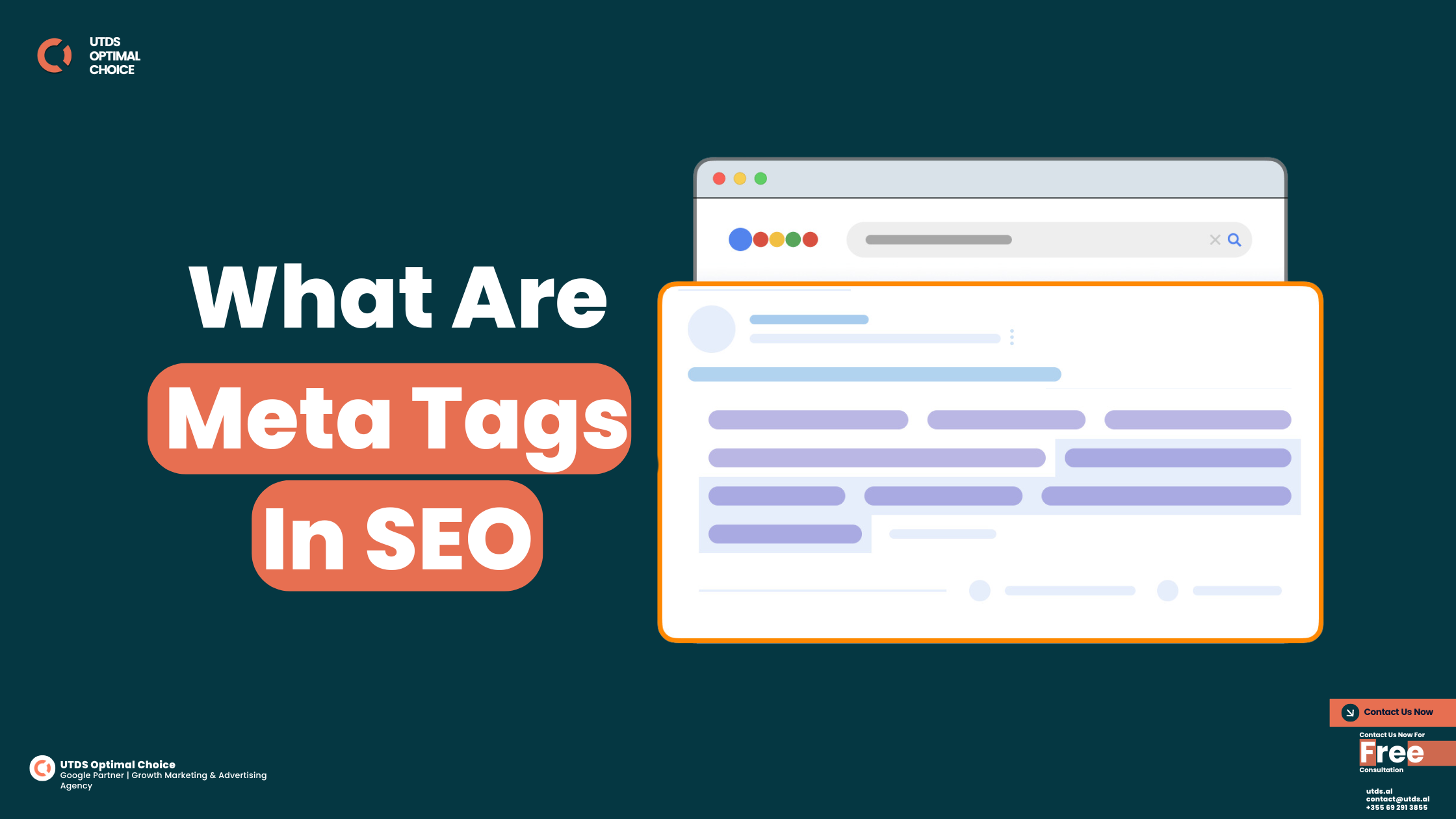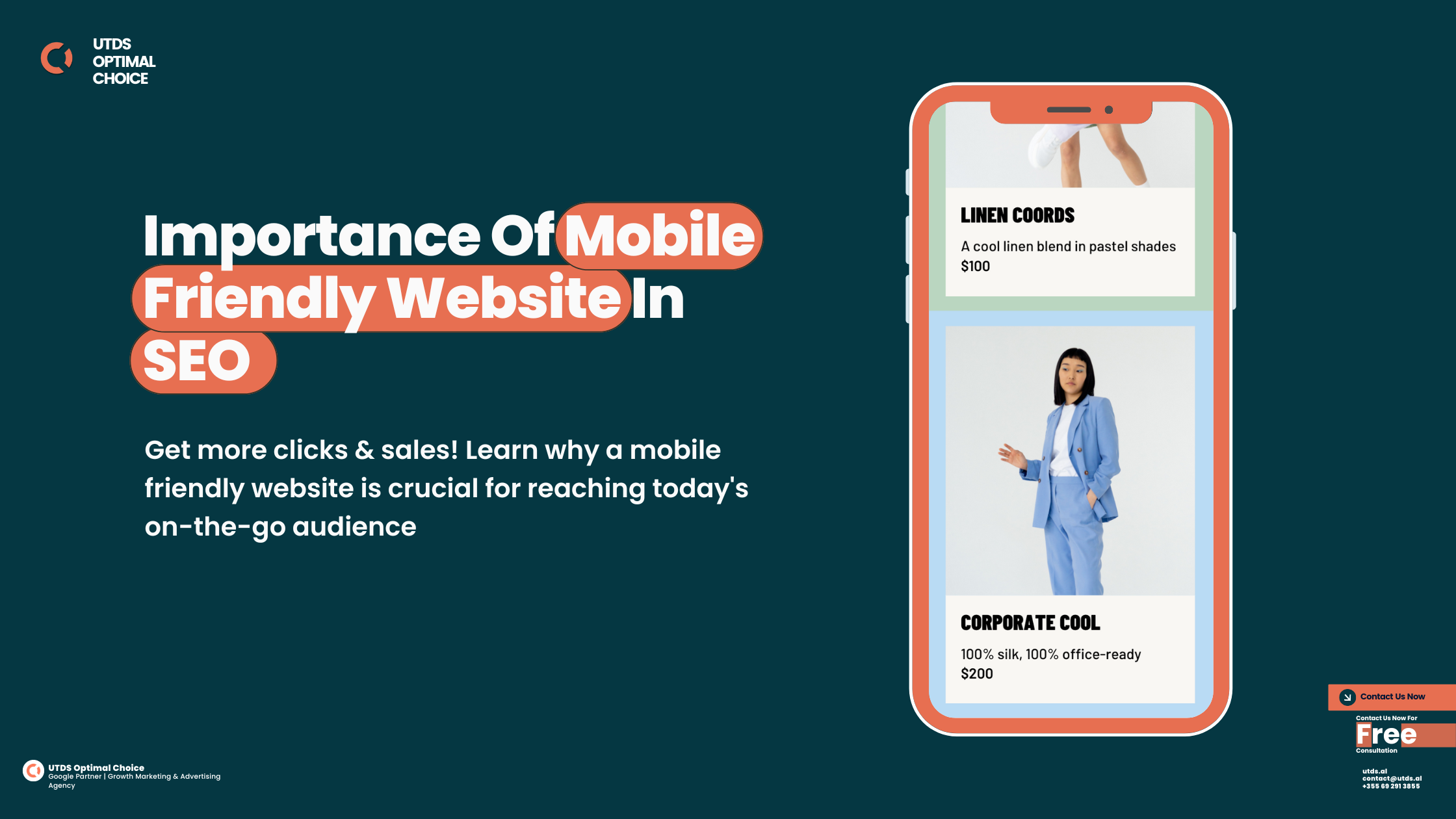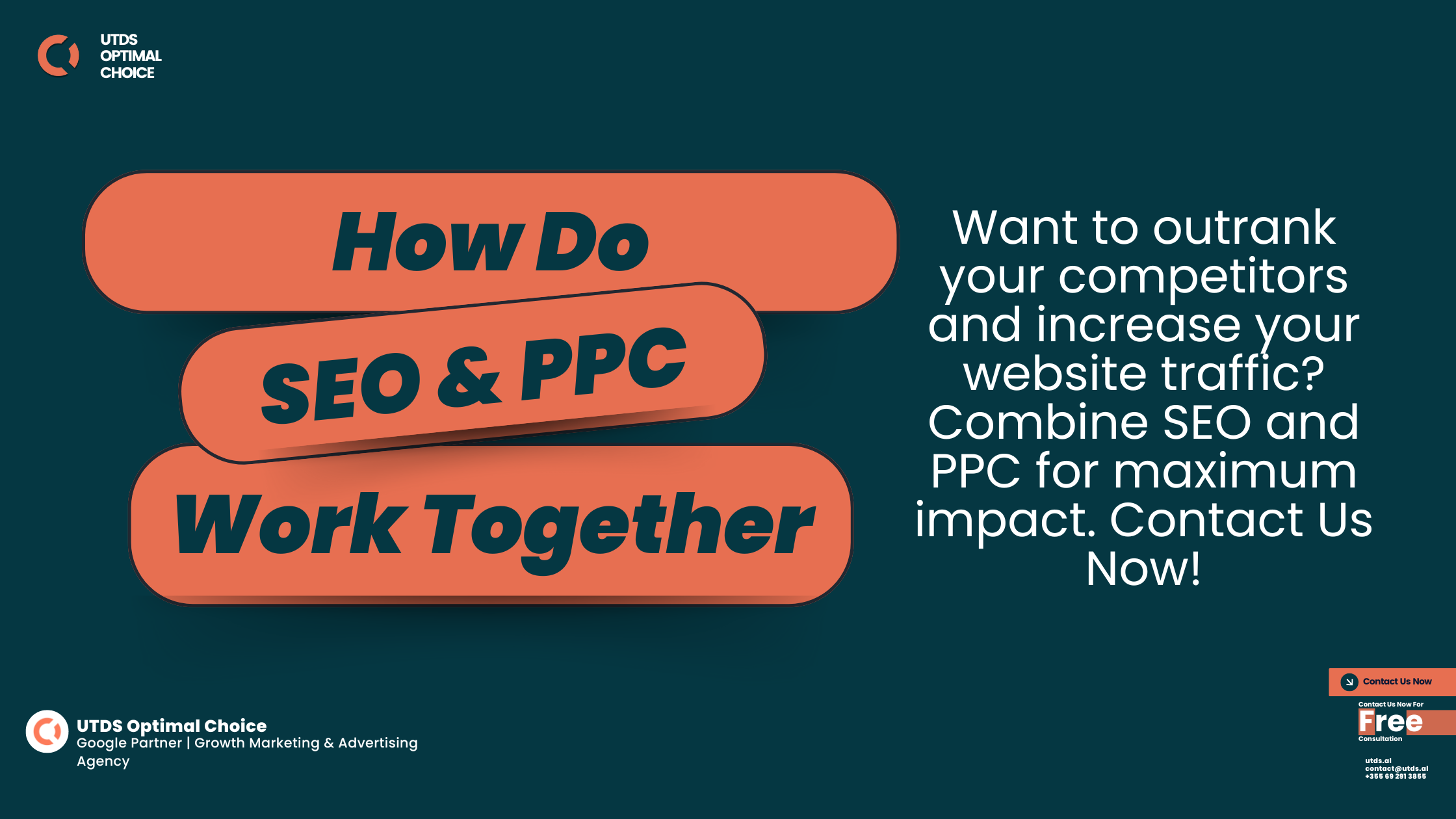For small businesses aiming to build an online presence, choosing between SEO and Google Ads can be a important decision. Both strategies play unique roles in driving traffic and increasing visibility. In this guide, we will break down the benefits, costs, and best use cases for each, helping you make an informed choice for sustainable growth.
Ready to grow your business? Partner with UTDS Optimal Choice, a trusted Google partner agency serving clients across the UK, Spain, and Albania. Let us help you select the strategy that aligns with your goals, whether it’s SEO, Google Ads, or both, to drive meaningful results. Contact us now for free consultation!
What Is SEO?
SEO ( Search Engine Optimisation) is the process of optimising your website to appear in organic search engine results. It’s a long-term strategy designed to increase visibility on search engines like Google without directly paying for ad placement.
Key Benefits of SEO for Small Business
- Sustainable Growth: SEO impact builds over time, making it ideal for businesses seeking steady growth.
- Cost-Effective: Unlike paid ads, SEO doesn’t require direct payments to remain visible; the focus is on content and user experience.
- Local Reach: With local SEO, small businesses can attract nearby customers searching for specific services or products.
Common SEO Tactics
- Keyword Targeting: Researching and using keywords that match what potential customers search for.
- Content Creation: Publishing helpful, engaging content to attract and retain visitors.
- Technical Optimisation: Improving site speed, mobile compatibility, and security for a seamless user experience.
- Backlinking: Gaining links from credible websites to boost your site authority.
What Is Google PPC Ads?
Google Ads is a pay per click advertising platform where businesses pay to have their ads displayed on Google’s search engine results page (SERP) and Google Display Network. PPC allows for immediate visibility, making it suitable for businesses needing quick results.
Key Benefits of Google Ads for Small Business
- Immediate Traffic: Ads appear instantly in search results, driving traffic as soon as the campaign is live.
- Targeted Reach: Allows for specific targeting based on location, demographics, and interests.
- Flexible Budgeting: Businesses can set daily budgets, making PPC manageable for varying budget levels.
Common PPC Tactics
- Keyword Bidding: Bidding on keywords so your ads appear when people search relevant terms.
- Ad Copy Optimisation: Crafting compelling ad text to encourage clicks and conversions.
- Audience Targeting: Focusing on specific demographics to reach an ideal audience.
SEO vs Google Ads | Which Can Help Your Small Business Grow?
SEO vs Google Ads: Which One Suits Your Business?
SEO for Long-Term Growth
SEO is a gradual approach that improves over time. For businesses focused on building brand authority and customer loyalty, SEO offers lasting benefits. Content driven SEO helps educate customers, increasing engagement and credibility. However, it requires patience and ongoing effort.
Google Ads for Immediate Impact
If a business needs to promote a new product or seasonal sale quickly, Google Ads is the way to go. PPC campaigns deliver fast results, making them ideal for time-sensitive promotions. However, once ad spend stops, visibility ends as well.
When to Use Both
Combining SEO and Google Ads can create a powerful strategy. For example, a business can use Google Ads to drive immediate traffic while investing in SEO for sustainable growth. This approach is particularly effective for small businesses looking to build a strong online presence.
Cost Comparison And Return On Investment (ROI)
Cost of SEO
SEO costs vary depending on factors like content creation, website improvements, and backlinking. Small businesses can often start with a modest budget by focusing on local SEO and gradually scaling up.
- Ongoing Cost: Mostly involves content development and maintenance.
- ROI: SEO generally has a high return on investment over time due to ongoing organic traffic.
Cost of Google Ads
Google Ads operates on a pay per click basis, with costs depending on the competitiveness of keywords. Small businesses can set daily or campaign-specific budgets, allowing for controlled spending.
- Upfront Cost: Immediate payment for each click.
- ROI: While PPC delivers faster results, it can become costly if not managed carefully. ROI is generally tied to conversion rates and ad targeting precision.
Example: A small business may spend £300 on a Google Ads campaign to promote a holiday sale, while investing £200 monthly in SEO for steady website traffic.
SEO vs Google Ads: Use Cases For Small Businesses
- New Businesses: For immediate visibility, a Google Ads campaign can help attract customers right away, giving the business a faster start.
- Established Businesses: SEO is effective for established businesses seeking to build authority and credibility over time.
- E-commerce: A combined approach using SEO for long-term rankings and Google Ads for product promotions can be especially effective.
- Local Services: SEO is valuable for local businesses as it helps attract nearby customers. Adding Google Ads can further enhance reach within the local community.
How Can We Help You?
For many small businesses, deciding between SEO and Google Ads can feel challenging. Each strategy brings distinct advantages, SEO lays the foundation for sustainable, long-term visibility through organic search, while Google Ads offers the immediate reach you need to make a quick impact. Combining these approaches can deliver powerful results, creating a balanced strategy that drives growth in both the short and long term.
Ready to find the best solution for your business? At UTDS Optimal Choice, we specialise in crafting tailored digital strategies that align with your specific goals and budget. Whether you’re interested in building a solid SEO foundation or running a high-conversion Google Ads campaign, our team has the expertise to maximise your ROI and accelerate your business growth. Contact us today to know how we can help your business grow.
Frequently Asked Questions (FAQs)
Should small businesses invest in SEO or Google Ads?
It depends on your goals. SEO is ideal for long-term growth, while Google Ads is effective for quick visibility. A balanced approach often works best.
How long does it take for SEO to show results?
SEO typically takes three to six months for noticeable improvements, depending on competition and effort invested.
Is it more expensive to run Google Ads than SEO?
Google Ads requires a consistent budget for each click, while SEO costs are mostly upfront and tend to be consistent over time as organic rankings improve.
Can I use both SEO and Google Ads together?
Yes, using both can maximise reach. SEO builds sustained traffic, while Google Ads can bring immediate results, and increase the traffic as well, especially for promotions.

